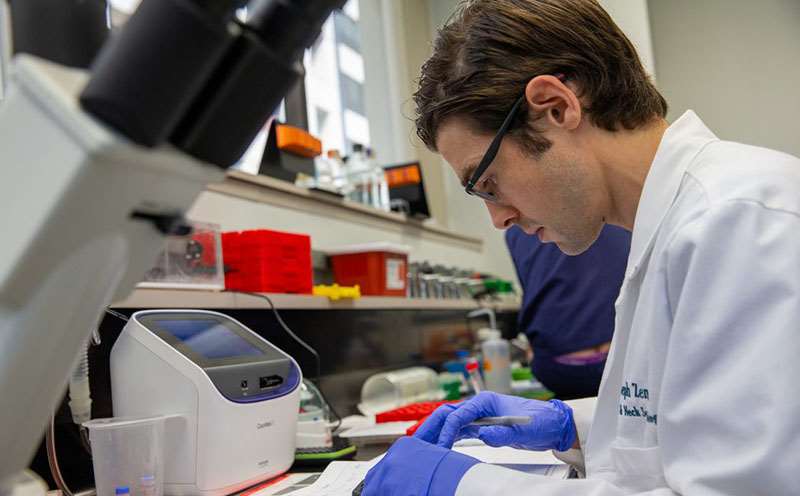Educational Opportunities

The purpose of the individual ACS-IRG Pilot Awards is to support the development of exceptional cancer- related research projects for junior faculty members who are in the process of establishing independent cancer research programs.
The goal of the individual ACS-IRG pilot awards is to assist junior faculty in generating preliminary data to increase their likelihood of success in obtaining extramural peer-reviewed funding. A clear plan for how the pilot data will support development of the external funding proposal(s) is required (see Future Funding Plan instruction).
Priority Areas of Funding for the Current Funding Cycle
Studies targeting breast and prostate cancer and sarcoma will be prioritized, though proposals involving all cancer types are eligible. All areas of cancer research – basic, preclinical, prevention and control, population, epidemiological and psychosocial cancer research (including quality of life research) – will be considered for funding. Applications for novel clinical projects (such as improvements of diagnostics and screening as well as genetic studies to improve prediction by identifying and understanding how genes and illnesses may be related) and for community-based projects are encouraged in addition to basic science projects. Note: This mechanism does not provide support for interventional treatment clinical trials.
Budget: $60,000 for a two-year award period. The ACS-IRG provides $40,000. $20,000 in supplemental funds from the CC will be awarded upon notification that the ACS-IRG funds have been spent.
- RFA Release: January 15, 2026
- LOI Due: Deadline extended: February 26, 2026
- Applicants are highly encouraged to present their Specific Aims at the Cancer Research Forum on February 26, 2026.
- Application Due: No later than 11:59 p.m. on April 1, 2026
- Award Begins: On or after July 1, 2026
View the ACS-IRG RFA for full details and instructions. (PDF)
Explore the Mentored Career Development Program
Early-career faculty have access to the Cancer Center’s Research Development Office which provides in-depth assistance with grant proposals and protocol development, including scientific and administrative components, budgeting, and application submission.
For questions, email the Research Development Office.
Complementary to this support, faculty have access to training modules including an Advanced Qualification Certificate in Human Subjects Protection and a Graduate Certificate in Clinical and Translational Science provided through a partnership with MCW’s Clinical & Translational Science Institute (CTSI).
Discover the Research & Community Scholars Program
The Upper Midwest Emerging Scholars Exchange is a new, collaborative effort to support the career development of early career faculty (MCW members in their first five years) in the region. The goal is to create opportunities for MCW faculty to receive invitations to speak at peer Midwest cancer centers. Not only will faculty have a chance to hone their oral presentation skills and bolster their CVs in preparation for promotion, but they will also have an opportunity to develop relationships with potential research collaborators, mentors, and sponsors.
Program Details
- Each scholar exchange experience will include the following:
- A speaking presentation at a Seminar Series, Grand Rounds, or other similar speaking program as determined by the hosting institution
- One-on-one meetings with faculty in research areas relevant to the visiting scholar
- Dinner with host institution faculty members or leadership
- Lunch with host institution early career faculty member or trainees
- A campus/facility tour (Optional)
- Full travel expenses, including an overnight stay at a hotel near the host institution, transportation, and per diem
- $600 honorarium
Partnering Institutions
- Holden Comprehensive Cancer Center at the University of Iowa (Iowa City, IA)
- University of Nebraska Medical Center, Fred & Pamela Buffett Cancer Center (Omaha, NE)
- University of Minnesota, Masonic Cancer Center (Minneapolis, MN)
- University of Wisconsin, Carbone Cancer Center (Madison, WI)
- Mayo Clinic Comprehensive Cancer Center (Rochester, MN) — Joining the program in 2025.
Application Requirement
The following materials are needed to complete the application:
- Responses to four open-ended questions about your interest in the program and ideas for talks
- Ranked preference of host institutions
- Up-to-date CV or NIH biosketchA letter of recommendation from an MCW member - either a Program Area Leader, mentor, or collaborator
For more information, please contact mcwcc-crtec@mcw.edu.

